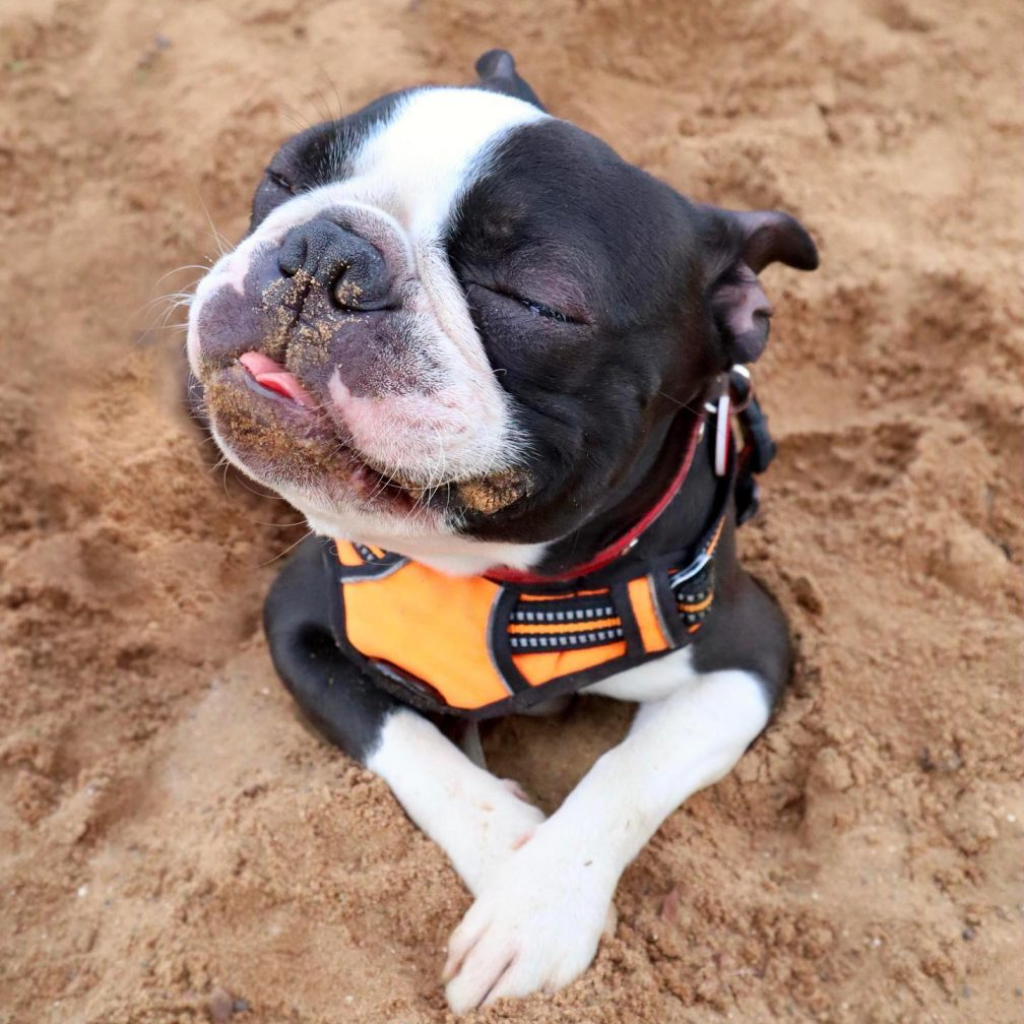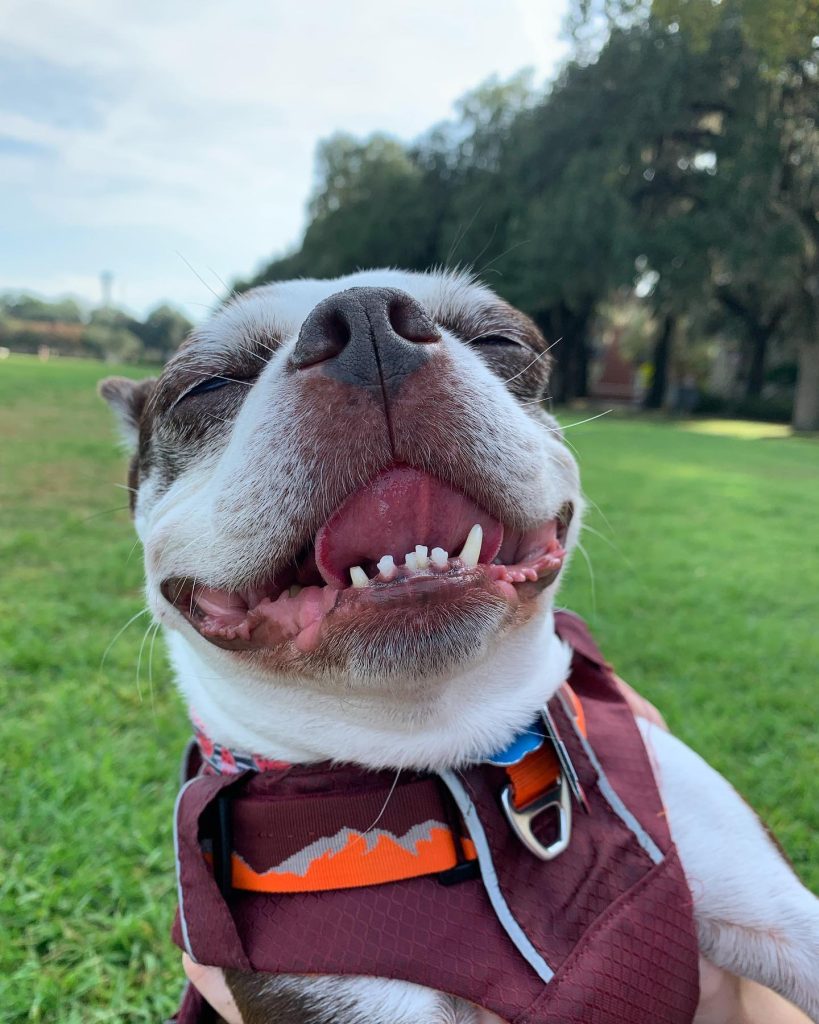
Comprehensive Guide to Boston Terrier Training
Boston Terriers, known for their distinctive tuxedo-like markings and friendly demeanor, are a joy to train. Their intelligence and eagerness to please make them ideal candidates for various training techniques. This guide aims to provide a comprehensive overview of how to effectively train your Boston Terrier, ensuring that the process is enjoyable and rewarding for you and your pet.
Training Boston Terriers requires a blend of patience, consistency, and positive reinforcement. These dogs are known for their intelligence and quick learning abilities, but they also have a playful side that may be a little challenging at times. When training Boston Terriers, it’s crucial to establish clear communication and boundaries from the start. This breed’s eagerness to please, combined with their sensitive nature, means that they respond well to gentle guidance rather than harsh discipline. Therefore, understanding how to discipline a Boston Terrier involves redirecting unwanted behavior using positive reinforcement techniques rather than punishment.
The process of how to train a Boston Terrier encompasses everything from basic obedience to more complex commands. Begin with fundamental commands such as sit, stay, come, and down, ensuring that your pup understands and follows these basic instructions. Crate training is also an essential component, providing your Boston Terrier with a safe and comfortable space of their own. It aids in house training and prevents destructive behavior when unsupervised. As a dog owner, your goal should be to teach your Boston Terrier in a way that’s engaging and fun, incorporating training into daily routines. Boston Terriers are easy to train due to their keen intelligence, but they thrive on variety and challenge, so keep sessions short and sweet to maintain their interest. Encourage and give your Boston praise and treats for their accomplishments, reinforcing their obedient behavior and strengthening your bond. Through consistent and understanding training methods, your Boston Terrier will grow into a well-mannered and joyful companion.
Initiating Training with Your Boston Terrier
The training journey with your Boston Terrier should begin as soon as they become a part of your family. Early training not only helps in molding their behavior but also in strengthening the bond between you and your dog. The key is to start with simple commands and gradually increase the complexity of the tasks. Remember, puppies have short attention spans, so keep the training sessions brief and engaging. Use treats and praises as rewards, as Boston Terriers respond well to positive reinforcement.
When initiating training, it’s essential to create a consistent routine. Dogs, especially Boston Terriers, thrive on routine as it gives them a sense of security and helps them understand what is expected. Establish a specific time and place for training sessions. This consistency will help your Boston Terrier to understand that it’s time to focus and learn quickly.
Integrating Boston Terrier tips into your training regimen from the outset is crucial for any owner of a Boston Terrier looking to cultivate a well-behaved Boston Terrier. How to train a Boston Terrier involves more than just obedience; it’s about understanding and meeting the needs of your energetic and intelligent companion. Crate training and potty training are foundational elements that should not be overlooked. A crate serves as a safe haven for your dog, aiding significantly in housebreaking and preventing destructive behavior when unsupervised. Similarly, establishing a consistent potty training routine is vital for hygiene and comfort, both for your pet and your household.
For those looking for new and effective training techniques, remember that Boston Terriers, or Bostons, are highly social and thrive on interaction and approval. Incorporating games and playful learning can make training your terrier puppy an important and enjoyable part of their development. Patience and consistency are key, as is the use of positive reinforcement to reward good behavior. This approach not only aids in learning but also strengthens the bond between you and your pet, making your Boston more inclined to listen and respond.
Boston Terrier owners should aim to make your Boston feel valued and understood. Utilize a variety of Boston Terrier training strategies to keep them engaged and eager to learn. By addressing the unique characteristics of the breed, you ensure that your Boston Terrier grows into a sociable, confident, and obedient companion, fully integrated into your family and lifestyle.
Core Training Principles for Boston Terriers
Training a Boston Terrier requires understanding core principles that are effective specifically for this breed. Boston Terriers are intelligent, affectionate, and sometimes stubborn, so your training approach should be tailored to these traits. Here are the fundamental principles to keep in mind:
- Positive Reinforcement: Boston Terriers respond exceptionally well to positive reinforcement. This means rewarding good behavior with treats, praise, or playtime. Avoid negative reinforcement or punishment, leading to fear and aggression in these sensitive dogs.
- Consistency: Consistency is crucial in dog training. Use the same commands, tone of voice, and hand signals every time. This consistency helps your Boston Terrier to understand and follow your instructions more easily. Everyone in the household should be on the same page with these commands to avoid confusion.
- Patience: Training takes time and patience, especially with a breed as spirited as the Boston Terrier. They may need more time to get everything right, so it’s essential to be patient and keep training sessions short and enjoyable.
- Understanding Their Personality: Each Boston Terrier has its personality. Some may be more energetic and playful, while others might be more reserved. Tailor your training methods to suit your dog’s personality. For instance, a more playful dog might respond better to training games, while a more timid dog might need a gentler approach.
- Socialization: Socializing your Boston Terrier from a young age is vital. It helps in preventing behavioral issues such as fear, aggression, or anxiety. Expose them to different people, dogs, environments, and situations in a controlled and safe manner.
Developing Basic Obedience Skills
In training your Boston Terrier, developing basic obedience skills is fundamental. These skills are not just about commands but also about cultivating a sense of structure, discipline, and understanding between you and your dog. Let’s delve into how you can effectively teach these skills to your Boston Terrier.
Enhancing Training with Positive Reinforcement
One of the most effective methods in obedience training is positive reinforcement. This approach focuses on rewarding your dog for desirable behaviors, encouraging them to repeat them. Positive reinforcement can include treats, praises, or a favorite toy. Rewarding your Boston Terrier immediately after they display the desired behavior is essential so they make the correct association.
When teaching basic commands like ‘sit,’ ‘stay,’ ‘come,’ or ‘heel,’ keep your training sessions short, focused, and fun. With their lively personalities, Boston Terriers might get bored with repetitive or lengthy training sessions. Use a happy, enthusiastic voice and plenty of praise. Remember, the goal is to make training a positive and enjoyable experience for your dog.
Incorporating Boston Terrier puppy training information into your regimen is vital, as early education sets the foundation for a well-adjusted adult dog. How to train Boston Terrier puppies effectively often involves understanding that while they are keen learners, they can be stubborn at times. This characteristic means that while you’re looking to teach new commands, it’s crucial to be patient and consistent. Take your Boston on a journey of discovery in training, allowing them to explore commands and tricks in a supportive environment. Reward your Boston not just with treats, but also with affection and playtime, reinforcing the bond between you and your proud Boston Terrier.
Given their sometimes willful nature, considering enrollment in a dog training academy or following a program like Dunbar’s virtual training can provide structured guidance and new strategies for engagement. These resources are designed to help you navigate the challenges of training, offering a plethora of techniques tailored to the unique needs of your Boston Terrier’s personality. Remember, the key to successful training lies in positive reinforcement, adapting to your dog’s learning pace, and celebrating the small victories along the way.
| Training Aspect | Description |
|---|---|
| Positive Reinforcement | Utilize treats, praises, or toys to reward desirable behaviors. |
| Basic Commands | Teach commands like ‘sit,’ ‘stay,’ ‘come,’ and ‘heel’ in short, engaging sessions. |
| Puppy Training | Start training early, focusing on socialization and basic obedience. |
| Training Challenges | Address stubbornness with patience and consistency, adapting techniques as needed. |
| Resources | Consider professional training programs or virtual academies for additional support. |
Strategies for Effective Communication
The Importance of Consistency in Commands
Consistency in your commands and cues is vital. Always use the exact words and gestures for each command. For instance, if you use the word “come” to call your dog, stick with that. Using different words for the same command, like “come here” or “over here,” can confuse your Boston Terrier.
The tone of your voice also plays a role in effective communication. Use a firm, clear tone for commands and a cheerful tone for praises. This distinct difference helps your dog understand when you are giving a command and when you are expressing approval.
Cultivating Patience and Fairness in Training
Patience is vital in dog training. There will be days when your Boston Terrier might respond differently than you’d hoped. It’s essential to remain patient and not show frustration or anger. If a training session is not going as planned, it’s okay to take a break and try again later.
Fairness in training means not expecting more from your dog than they are capable of at their age or training level. Start with simple commands and gradually move to more complex ones as your dog masters each stage.
Incorporating Fun in Training Sessions

Adding a playful element to training sessions can significantly enhance the learning experience for your Boston Terrier. When training feels like play, it keeps your dog motivated and deepens the bond between you two. Here are some practical ways to infuse fun into your training routine:
- Use Games as Training Opportunities: Integrate games that your Boston Terrier loves into the training. Simple games like fetch or tug-of-war can reinforce commands like ‘come,’ ‘drop it,’ or ‘stay.’ This approach keeps the session lively and teaches your dog to follow commands in a playful setting.
- Vary the Training Environment: Take your training sessions outside the confines of your home. Training in different environments like parks, quiet streets, or a friend’s backyard introduces your dog to various stimuli, making them more adaptable and focused. It also adds an element of excitement for your dog as they get to explore new surroundings.
- Incorporate Training into Daily Play: Seamlessly blend training into your daily playtime with your Boston Terrier. It helps reinforce the training in a less structured, more spontaneous manner. For instance, ask your dog to perform a ‘sit’ before you throw their favorite ball.
- Create Fun Challenges: Set up mini-challenges or obstacle courses using household items. Encourage your dog to navigate these obstacles, rewarding them at each successful step. This not only aids in physical and mental stimulation but also in teaching new skills and reinforcing existing ones.
Incorporating these fun elements into your training sessions creates a positive learning environment for your Boston Terrier. Training becomes a time of joy and bonding rather than a chore, fostering a happy and well-trained companion.
Balancing Formal and Informal Training
When training a Boston Terrier, balancing formal and informal training is crucial. This balance ensures that your dog learns to obey commands in structured sessions while behaving appropriately in everyday situations. Here’s how you can effectively achieve this balance:
- Formal Training Sessions: These are structured training times where specific skills and commands are taught. Use these sessions to introduce new commands, refine existing skills, and work on complex tasks. Keep these sessions short, focused, and consistent. Utilize positive reinforcement and maintain a patient, encouraging demeanor.
- Informal Training Opportunities: Informal training happens throughout the day during regular interactions with your dog. This can include reinforcing commands like ‘sit’ or ‘stay’ before meals, during walks, or while playing. It’s a way to practice and integrate the skills learned in formal sessions into everyday life.
- Consistency Across Both Settings: Consistency in commands, rewards, and expectations is critical in formal and informal settings. Use the same cues and rewards, whether in a structured training session or giving a casual command at home. This helps your Boston Terrier understand that the rules and expectations are the same, regardless of the setting.
- Adapting to Different Environments: Gradually expose your Boston Terrier to various environments during informal training. This could include practicing commands in a park, during a walk, or in a pet-friendly store. It helps your dog to adapt and respond to your commands amidst distractions.
- Integrating Training into Daily Routines: Make training a part of your daily routine with your Boston Terrier. Use everyday situations as opportunities for reinforcement. For example, practice ‘wait’ at doorways or ‘come’ when calling them inside.
- Observing and Responding to Your Dog’s Mood: Pay attention to your dog’s mood and energy levels. If they seem tired or distracted, switch to a more informal training approach or take a break.
Balancing formal training sessions with informal, everyday learning experiences provides your Boston Terrier with a well-rounded training experience. This approach reinforces good behavior and helps build a respectful and understanding relationship with your pet.
Encouraging Good Behavior Consistently
Consistency is vital in reinforcing good behavior in Boston Terriers. Establish and maintain clear rules and boundaries to guide them. Regularly practicing commands and rewarding good behavior helps solidify these behaviors as habits. It’s essential to provide consistent responses to your dog’s actions; if a behavior is rewarded one day and punished the next, it creates confusion. Use positive reinforcement like treats, praise, and affection to encourage desirable actions. Remember, consistency from all family members is crucial. This unified approach ensures that your Boston Terrier understands what is expected, leading to a well-behaved and happy companion.
Diversifying Training Settings and Scenarios
To develop a well-rounded Boston Terrier, training in various settings and scenarios is essential. This exposes them to different environments and distractions, enhancing their adaptability and obedience. Train in quiet indoor spaces, bustling outdoor areas, and unfamiliar places. Each setting presents unique distractions and challenges, allowing your dog to learn and apply their skills in diverse contexts. This variety also keeps training interesting for your dog, preventing boredom. Successfully navigating different scenarios reinforces their training, making them more confident and well-behaved no matter where they are.
Approaches to Advanced Training Techniques

As your Boston Terrier masters basic commands, introduce advanced training techniques. These can include more complex commands, agility training, or learning specific tasks. This stage of training enhances their cognitive and physical abilities, providing a deeper level of engagement. Focus on techniques that challenge their mind and body, like navigating obstacle courses or learning tricks that require a sequence of actions. Always progress at a pace that suits your dog’s learning curve, ensuring they are comfortable and confident with each new challenge. Advanced training keeps your Boston Terrier stimulated and strengthens your bond through collaborative learning.
Maintaining a Regular Training Schedule
Consistency in training is vital, and maintaining a regular schedule is a significant part of this. Dedicate specific times each day for training sessions. Consistent training reinforces learned behaviors and keeps your Boston Terrier engaged and focused. However, be flexible and attentive to your dog’s mood and energy levels; some days, they might need a lighter or more playful session. Regular training doesn’t mean rigidity; it’s about creating a routine accommodating learning and fun, ensuring your Boston Terrier remains enthusiastic about training.
Understanding and Utilizing Motivational Techniques
Different Boston Terriers are motivated by different things. Some respond well to treats, others to verbal praise or toys. Understanding what motivates your dog is crucial in practical training. Use their favorite rewards to encourage participation and reinforce positive behaviors. Mix up the rewards to keep training interesting.
Additionally, recognize the power of affection and attention as motivational tools. A happy, enthusiastic voice and physical affection can be as rewarding as treats. The key is to observe and understand what excites and motivates your dog, making training a positive and successful experience.
Navigating Training Challenges and Adjustments
Training a Boston Terrier can be challenging sailing. Be prepared to face and navigate challenges, whether stubbornness, distractions, or specific behavioral issues. When a problem arises, stay calm and patient. Reassess your approach and consider if a different technique or strategy might be more effective. Sometimes, taking a step back and reinforcing basic commands can help. Remember, it’s okay to seek advice from professional trainers if you encounter persistent issues. Flexibility and adaptability in your training approach are crucial for overcoming these challenges and ensuring a positive learning experience for your dog.
Health Considerations in Boston Terrier Training

Boston Terriers have specific health considerations that should be considered during training. They are brachycephalic (short-faced), which can lead to breathing difficulties, especially during intense physical activity. Keep training sessions short and avoid strenuous exercises, especially in hot or humid weather. Always have water available and watch for signs of overexertion. Additionally, be mindful of their joint health; avoid activities that strain their joints excessively. Regular vet check-ups are essential to ensure they are healthy and fit for training.
Transitioning Training into Daily Routines
Incorporate learned behaviors and commands into your Boston Terrier’s daily routine. This seamless integration helps reinforce training in a practical, real-life context. For instance, use meal times to practice ‘sit’ and ‘stay’ or use walks to reinforce ‘heel’ or ‘come.’ This method helps your dog understand that commands are not just for training sessions but are part of everyday life. It also allows for continuous reinforcement and practice, essential for maintaining good behavior.
Evaluating and Advancing Your Training Methods
As your Boston Terrier progresses, regularly evaluate and update your training methods. Observe how they respond to different techniques and adjust accordingly. As they master basic commands, they introduce more complex tasks to keep them challenged. Stay informed about new training methods and theories; continuous learning benefits you and your dog. Remember, the goal is to keep training engaging and compelling, adapting to your dog’s growing skills and changing needs.

Final Reflections on Boston Terrier Training
Training a Boston Terrier is a rewarding journey that strengthens your bond with your pet. Remember, patience, consistency, and understanding are vital. Each dog is unique, so tailor your approach to fit their personality and learning pace. Celebrate the small victories and learn from the challenges. The time and effort invested in training your Boston Terrier will result in a well-mannered, happy, and loyal companion. Embrace this journey with love and patience, and enjoy the excellent relationship that develops through training your delightful Boston Terrier.
